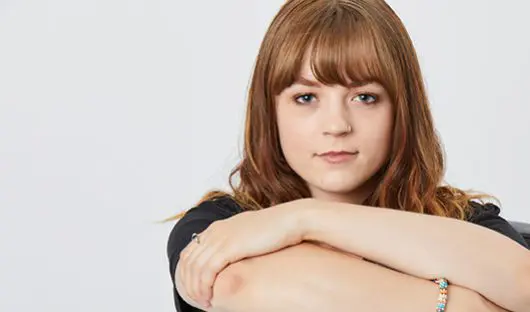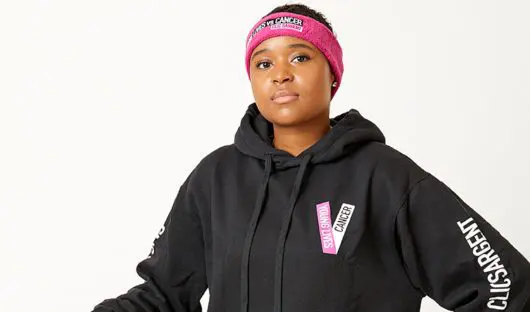Hair loss tips
It's normal to feel like your hair forms a big part of your identity, which means losing it or dealing with changes can be especially tough. You're not alone if you feel this way but remember you do have options.
How does cancer treatment affect hair?
Some cancer treatments can cause hair loss. They can also weaken your hair. Not all treatments cause hair loss and not everybody loses all their hair. Most people find their hair grows back after chemotherapy. Hair does not always grow back after radiotherapy. Talk to your doctor about what to expect.
Hair care tips for cancer patients
Dealing with changes to your hair like thinning and dryness can be tough. Sometimes it grows back in a different way which can be difficult if it’s not what you’re used to. But there are things you can do to take care of your hair.
Use a neutral pH shampoo
You might have heard people talking about using baby shampoo during chemotherapy. But you should use a neutral pH shampoo and conditioner. Baby shampoo is too alkaline.
Talk to your hairdresser
Let your hairdresser or barber know what you’re going through so they can help find a style you can manage.
Avoid colouring
As tempting as it might be to try a different style, avoid colouring your hair during treatment and for six months afterwards. This is because your hair is more fragile than usual and more likely to be damaged by the hair dye.
Avoid perming, tongs or straighteners
Avoid perming or chemically relaxing your hair during cancer treatment and for about six months after treatment. This is because the harsh chemicals can make it even more dry and brittle.
You should also avoid adding too much heat to your hair from things like tongs, rollers and straighteners. These can all dry your hair and make it more likely to break.
Cut your hair short
Cutting your hair short can be a great way to try out a new look and take control of your hair loss. Losing small clumps of hair can be less emotional than long strands. Lots of people find a shorter style looks great on them. Talk to your hairdresser about what might work for you.
Use fragrance-free shampoos
Some cancer treatments can make your scalp feel itchy and tender. The chemicals used to add scent to shampoo and conditioner can make this worse. Fragrance-free shampoos help avoid this. If you are having radiotherapy, ask your care team about the best shampoos to use.
Hair loss and scalp care tips for cancer patients
People deal with losing their hair in different ways. For some, it can be a traumatic experience, while others take it in their stride. If you’re struggling with this, our self-esteem advice could help and remember there are plenty of things you can do.
Wash scalp regularly
Look after your skin by washing your scalp regularly with a gentle face wash rather than shampoo.
Moisturise
After rinsing with warm water, pat dry and massage your scalp with a moisturiser to keep your skin feeling nourished.
Sun cream
If you’re going out with nothing covering your head, be sure to apply sun cream with a high SPF.
Wigs
Wigs can help you feel more like yourself when you lose some or all of your hair. They can also help you explore new hairstyles and colours.
- Your care team will be able to recommend a good supplier. Take along a friend or family member to help you find the right one
- Remember there is no pressure – go for one that makes you feel comfortable
- There is a range of options when choosing a wig. You can go for something custom-made or off-the-shelf, using synthetic or real hair. Try on a few and have some fun
- Always ask the seller or manufacturer how you can keep your wig in good condition.
If you are a hospital inpatient or you are aged 18 or under and in full-time education, you are entitled to a free wig. This also applies if you, your partner or parents are receiving certain benefits.
Essential oils
Some studies have found essential oils might help support hair growth in general. But there is no evidence to suggest they can stimulate hair growth after cancer treatment.
You might want to use essential oils as part of aromatherapy to help you feel more relaxed during your treatment. This is generally safe if oils are used in the right way but there can be side effects. Always talk to a qualified aromatherapist before using any oils. Find out more about the use of essential oils on our complementary therapies page.
Massage scalp
Massaging the scalp can make you feel more relaxed and improve blood flow to the skin. It can also be a way to pamper yourself if you are not having scalp problems.
Regularly wash head coverings
You may feel more confident wearing a head covering like a hat, scarf or turban. That’s great but make sure you wash it regularly. This helps to keep your scalp clear of sports and irritation.
Use a cotton pillowcase
Pillows and pillowcases made from natural fibres like cotton can help prevent sweating. This helps protect your scalp from irritation and spots.
Roisin’s lost her hair a few times. In her video, she gives some ideas about how you might want to handle it.
Eyelashes and brows
Losing your lashes and brows can be just as challenging as losing your hair. You can use products like eyeliners, brow pencils and false lashes to help you feel better.
- Staff at makeup counters can help you find products that work for you and show you how to use them
- YouTube tutorials can be great for showing you how to be creative with your makeup
- If your eyes are feeling sore or sensitive, have a chat with your care team for some advice.
Roisin gives some more tips about what you might want to do if you’ve lost your eyebrow hair or eyelashes.
Pubic hair
Some people lose pubic hair during cancer treatment. If this happens to you, you might be upset or worried about how it will affect your sex life. If you have a partner, talk to them about how you are feeling. Most of the time, if you talk about something openly it seems like less of a problem.
Facial hair
Facial hair like moustaches and beards can be a huge part of your identity. This might be because of your faith or just because you like the way it looks.
Just like with other types of hair, you might find you lose facial hair during cancer treatment. Some companies sell false moustaches and beards but it can be expensive to get them custom made.
Scalp cooling
Cooling your scalp during chemotherapy can help reduce or prevent hair loss. This is because it reduces blood flow to the scalp. This can stop the chemo drug affecting your hair. There are two types of scalp cooling – a cold gel cap and a refrigerated cooling system.
Scalp cooling only works with certain chemotherapy drugs. Your care team will be able to talk you through the options and whether it is right for you.
Coping with a sensitive scalp
You might find your scalp is more tender or sensitive during cancer treatment. If you lose your hair, your scalp will also be more sensitive to cold or the sun than usual.
You might find it more comfortable to wear hats or head scarves when you are out. You can also try using an unscented moisturiser to reduce irritation.
Dealing with emotions about hair loss
Our hair can be a huge part of our identity. This means it is completely normal to have strong emotions about hair loss. You might feel less confident or anxious about going out. You might be angry about having a visual reminder of your cancer.
Try to talk to someone about how you are feeling. This could be a friend or a family member, or you could join a support group. You might also find talking therapies helpful.
Try out different practical options for coping with your hair loss. You might find a wig or head covering gives you more confidence.
Talk to your doctor
Knowing what to expect can make it easier to deal with hair loss. Talk to your doctor or nurse about what is likely to happen. They might also be able to give you some tips for reducing your risk of hair loss or coping when it does happen. They can also tell you about support groups in your area.
Reviewed: May 2023
Next Review date: 2027

